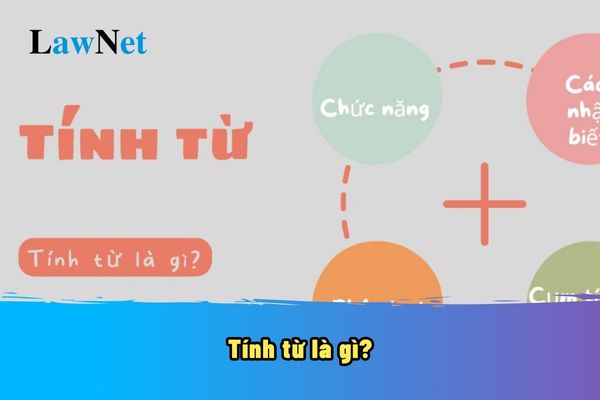What does an adjective mean? What is the role of adjectives in Vietnamese language? What is the grade whose Vietnamese language curriculum covers features of adjectives?
What does an adjective mean? What is the role of adjectives in Vietnamese language?
Adjectives are an indispensable part of language and contribute to making sentences more lively, meaningful, and effectively conveying information.
Students can refer to the following information on the concert of adjective and role of adjectives in Vietnamese language:
|
What does an adjective mean? What is the role of adjectives in Vietnamese language? Adjectives are words used to describe the characteristics, properties, and states of people, objects, and phenomena. They make sentences more vivid and specific. |
*Note: Information is for reference only./.

What does an adjective mean? What is the role of adjectives in Vietnamese language? What is the grade whose Vietnamese language curriculum covers features of adjectives? (Image from the Internet)
What is the grade whose Vietnamese language curriculum covers features of adjectives?
Under Section 1 of the General education program in Literature issued with Circular 32/2018/TT-BGDDT:
SUBJECT CHARACTERISTICS
Literature is a subject in the field of language and literature education, taught from grade 1 to grade 12. In elementary school, this subject is called Vietnamese; in lower and upper secondary school, it is called Literature.
...
Additionally, according to Section 5 of the General education program in Literature issued with Circular 32/2018/TT-BGDDT:
VIETNAMESE KNOWLEDGE
1. Rules for writing the names of agencies and organizations
2.1. Vocabulary by theme
2.2. The use of dictionaries, how to find words and their meanings in dictionaries
2.3. The meanings of some simple idioms
2.4. The meanings of some common Sino-Vietnamese elements
2.5. The effect of choosing words in meaning expression
3.1. Nouns, verbs, adjectives: characteristics and functions
3.2. Proper nouns and common nouns: characteristics and functions
3.3. Sentences and main components of sentences: characteristics and functions
3.4. Sentence adjuncts: characteristics and functions (to supplement information)
3.5. The function of dashes (used at the beginning of a line to mark listed points); hyphens (joining words in a coalition); quotation marks (marking the title of a work, document); parentheses (marking explanatory parts)
4.1. Personification rhetoric: characteristics and effects
4.2. The topic sentence of a paragraph: characteristics and functions
4.3. The three-part structure (introduction, body, conclusion) of a text: characteristics and function of each part
4.4. Text type and genre
- A narrative about an event witnessed; a story with illustrated pictures
- Descriptive text: describing animals, plants
- Paragraph expressing feelings about a character
- Paragraph providing an opinion on a story, character, or event, stating reasons for the opinion
- Text guiding the steps to perform a task; invitations, applications, reports
5. Information through images, data (non-verbal communication methods)
...
Thus, according to the above regulation, the features of adjectives will be included in the 4th-grade Vietnamese language curriculum.
What are the literary competencies required for 4th-grade students in Vietnam?
Under the General education program in Literature issued with Circular 32/2018/TT-BGDDT:
- Distinguish between narrative and poetic texts (prose and verse); recognize the content of the text and the author's attitude and feelings; initially understand the effects of some formal elements of literary texts (language, characters, plot, verse, comparison, personification). Know how to imagine, think, and express literary concepts in writing and speaking.
- For students in grades 1 and 2: recognize what a text is about, who it talks about; identify characters in stories, rhyme in poems; differentiate between stories and poems.
- For students in grades 3, 4, and 5: know how to read literary texts expressively; retell and summarize the main content of a story or poem; comment on characters, events, and the attitude and feelings of the writer in the text; recognize time and place, some types of rhymes, poetic rhythm, beautiful, unique language and images, and the effects of personification, comparison rhetorical devices.
- Understanding the meaning or lesson derived from the text. Being able to write passages or essays that narrate and describe emotions and the ability to associate, and imagine.

